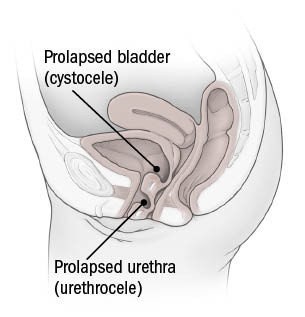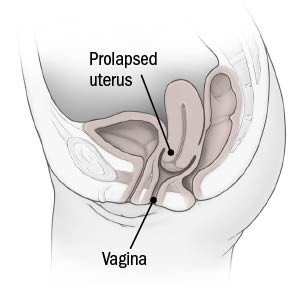1. Make an effort to listen with empathy. When someone speaks to you, practice paying close attention and taking the time to understand what they're saying.
2. Keep the focus on the other person while they're talking to you about a problem; don't turn it into a discussion about a problem you're having.
3. Maintain your composure. Keep calm during arguments to ensure that they are productive rather than damaging. If you can't keep your cool right now, take a step back and ask to resume the subject when you're in a better mood.
4. HALT. Keep the acronym HALT in mind. Ask yourself if you're hungry, angry (furious), lonely, or tired (weary) when you're upset about something. If this is the case, "pause" to meet those needs before returning to the problem.
5. Interact with people in person. Social media can sometimes exacerbate a tense relationship. On the internet, people may engage in more hostile confrontations than they do in person. Reducing time spent online fosters face-to-face, phone-to-phone, or video-to-video contact, which is frequently less contentious than words uttered from behind a keyboard, such as in text messages.
Many women are unaware that they have prediabetes, a condition in which blood sugar levels are increased but not high enough to cause diabetes. Despite the fact that prediabetes affects one out of every three adults, nine out of ten people with the disease are unaware of their condition.
Despite the fact that prediabetes has no symptoms, it can have a serious impact on your health. People with prediabetes are at nearly the same risk of cardiovascular disease as those with type 2 diabetes. Prediabetes increased the chance of acquiring cardiovascular disease by 15% and death from any cause by 13% over a 10-year follow-up period, according to a study published in The BMJ on July 18, 2020.
This is a high-risk factor for diabetes because people with prediabetes who already had plaque accumulation in their arteries were at a significantly increased risk of dying young. Within a three-year follow-up period, these persons had a 36 per cent greater risk of dying. Prediabetes causes high blood sugar, which can damage the blood vessels at the back of your eye, causing retinopathy, which can lead to blindness.
Prediabetes commonly escalates to full-blown diabetes if left untreated, a condition in which your body's cells are unable to absorb glucose (sugar) from the bloodstream. Blood sugar levels rise as a result, which can lead to even more health issues. Diabetes increases the risk of renal issues and infections, in addition to heart attacks, strokes, and blindness. Within five years, 15 per cent to 30 per cent of patients with prediabetes develop diabetes.
Positive relationships can improve one's health; but, when it comes to dysfunctional relationships, the opposite is typically true. Chronic emotional stress may increase your chance of developing a variety of health problems.
A partner, a family member, a friend, or a professional colleague might all be in a stressful relationship.
While your connections with others may appear to be beyond your control but there are always certain warning indications that you are in a toxic relationship. These include the following:
After interactions, you may feel exhausted or depleted.
Ruminating on the relationship's bad aspects
Feeling as if your relationship is unbalanced as if one partner provides or takes more than the other
You have the impression that the other person does not value or respect you.
Examine the relationship's tendencies throughout time. Is it fair to say that there has been more take than give? Is it a tense situation? "It's a red signal to take a closer look if you identify such indicators in yourself.
This is an ongoing research
An infection, heart surgery, or unknown causes might cause the pericardium (the lining surrounding the heart) to become irritated. Pericarditis is a type of irritation that causes acute, stabbing pain in the centre of the chest. Although it normally goes away after four to six weeks, some people have many attacks.
How to make your walking workouts more effective
Interval and Nordic walking can help you get in better shape, while mindful walking can help you relax.
Walking for exercise has the advantage of requiring no particular skills or equipment aside from a comfortable, supportive pair of shoes. The disadvantage is that it can become tiresome after a while. Try reinvigorating your walking routine with these unique twists on this popular kind of exercise to break up your dullness.
Every step counts, some factors are more important than others. Adding short bursts of brisk walking to daily strolls can raise your heart rate and increase your cardiorespiratory fitness more than merely walking at a slower pace. Purchase a pair of Nordic poles and use them while walking to engage more muscles and burn more calories. You can also utilize walking to practice mindfulness, a mind-calming technique that can help you relax and relieve stress.
Here are some ideas for how and where you can try these tactics.
Walking in intervals
This routine is only for experienced walkers, not beginners, Interval walking involves alternating short spurts of quick walking with slower strides. Walk briskly for 15, 30, or 60 seconds after a five-minute warm-up. Then, for an equal period, slow down and recover at a normal rate (or you may want to double your recovery time). Begin with shorter intervals of quick walking and progressively increase the length of time as your stamina improves over the weeks and months. Alternatively, you can maintain the intervals and lengthen your entire workout time. Both a smartwatch and a watch with second-hand works in keeping track of time. Instead of using time, you might utilize landmarks to identify your intervals. Take a quick walk for one or two city blocks, between two telephone poles, or a quarter lap around a local track, for example.
Related topic: 16 SPORTS TO KEEP YOU FIT ALL SUMMER
This is an ongoing research
Is it possible to predict your longevity based on your current or previous menstrual cycle? A study published in The BMJ on Oct. 3, 2020, linked irregular or menstrual periods that are long (defined as 40 days or more) both in adolescence and adulthood to a higher risk of early death (before age 70) than those with normal or short menstrual cycles. The researchers discovered that the link was stronger for fatalities from heart and blood vessel disease and among women who smoked, based on data from roughly 80,000 women who took part in the Nurses' Health Study II.
It's impossible not to observe a pattern when it comes to many prevalent chronic pain illnesses, such as fibromyalgia, migraine headaches, arthritis, or lupus. The majority of patients diagnosed with these diseases are women. Women are not only disproportionately impacted by diseases that cause chronic pain, but they also have a harder time acquiring a precise diagnosis and receiving adequate therapy.
Pain mystery.
It is unclear why women tend to be more likely to have pain problems that last longer than a short time. It may be due to genetics. A biological explanation for these discrepancies may exist. Tho, the onset of menstruation often causes migraines to worsen in females.
Post-traumatic stress disorder (PTSD) may also be triggered by trauma, including sexual assault, which might lead to additional symptoms such as chronic pain. Women are more likely to have post-traumatic stress disorder (PTSD) than males. Only ten per cent of women will be diagnosed with PTSD over their lives, whereas only four per cent of males will be diagnosed with the disorder.
What causes pain problems to be more prevalent in women?
Women tend to suffer more from pain problems than men, but far too many have to endure for longer than they should due to delayed diagnosis. One of the findings reported in a 2011 study done by the World Endometriosis Research Foundation showed that on average, a woman had to wait seven years from the time she first had symptoms to when she was diagnosed with endometriosis. Like the lining of the uterus, the tissue that causes endometriosis develops elsewhere in the body, resulting in inflammation and scarring.
Also often found in people with fibromyalgia is the delay in diagnosis. The condition is thought to originate in the brain's pain response region.
This is ongoing research.
Cancer treatment may be aided by gut microorganisms. This research is still ongoing and being watched.
Researchers at the National Cancer Institute's Center for Cancer Research discovered that changing the type of microbes in the gut helped people with metastatic melanoma (a type of skin cancer that is aggressive) react to immunotherapy treatments that had previously failed them.
This prevalent issue is frequently overlooked or misinterpreted. Pelvic organ prolapse, a disease in which the uterus, bladder, small intestine, or rectum bulges into the vaginal wall or drops down through the vagina, affects around half of the women over 50. However, unlike other prevalent health issues, many women are reluctant to discuss it, even with their doctors. Some people do it out of embarrassment, while others do it because they believe it's simply something they'll have to cope with as they get older.
Pelvic organ prolapse conditions
Normal positions of pelvic organs

Cystocele and urethrocele

Rectocele

Uterine prolapse



